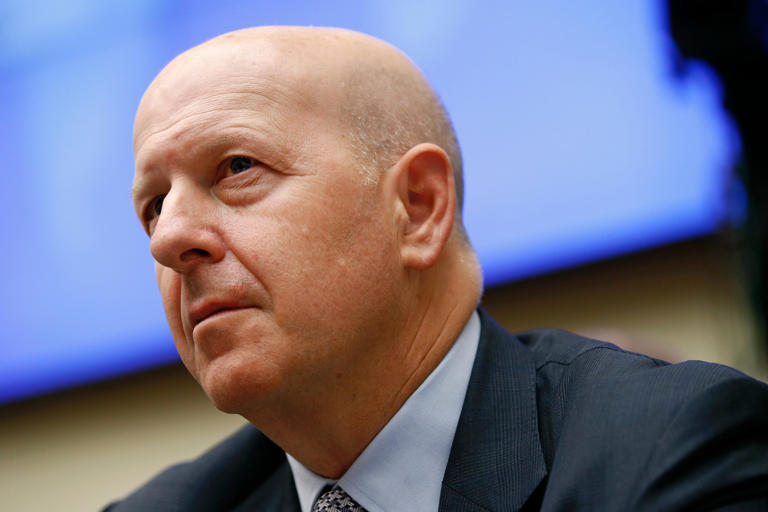Goldman Sachs CEO David Solomon faces a formidable challenge to his leadership, emerging from the influential advisory stance of Institutional Shareholder Services (ISS), a proxy advisor representing significant investors in the bank. ISS’s recommendation, advocating for the separation of the CEO and chairman roles within Goldman Sachs, underscores a growing demand for enhanced governance and independent oversight within the organization.
The call for separation of roles, articulated just before Goldman’s annual shareholder meeting in April, represents a significant shift in corporate governance dynamics. ISS’s position reflects broader concerns among investors regarding the concentration of power within the executive suite and the potential for conflicts of interest.
David Solomon’s tenure as CEO, marked by a remarkable surge in Goldman’s stock value, has nonetheless been shadowed by recent challenges and controversies. A Wall Street Journal report in March brought to light issues of gender diversity and female leadership within the bank, highlighting the departure of key female executives during Solomon’s leadership. The exit of Stephanie Cohen, who led Goldman’s foray into consumer banking, amid substantial losses in that sector, has raised questions about the strategic direction under Solomon’s helm.
ISS’s recommendation for separating the CEO and chairman roles resonates with concerns surrounding Solomon’s management of these challenges. The advisor’s call for increased independent oversight signals a broader push for transparency and accountability within Goldman Sachs, particularly in the wake of recent setbacks.
Despite ISS’s stance, Goldman’s governance committee has reiterated its support for the current leadership structure, maintaining that the dual CEO-chairman model remains the most effective for the bank. This reaffirmation reflects the board’s confidence in Solomon’s leadership abilities despite mounting criticisms.
As the bank prepares for its annual meeting, the spotlight is on Solomon’s response to ISS’s recommendation and investor sentiment. The outcome of the shareholder vote will not only shape the future leadership dynamics within Goldman Sachs but also send a clear signal about the direction of corporate governance standards in the financial industry.
Amidst these developments, the appointment of David Viniar as the next lead independent director assumes significance. Viniar’s extensive experience within Goldman, coupled with his understanding of the complexities of the financial sector, positions him as a key figure in navigating the bank through this period of scrutiny and change.
As Solomon grapples with the challenge to his leadership, the road ahead for Goldman Sachs is fraught with both opportunities and risks. How the bank addresses ISS’s recommendations and implements governance reforms will determine its ability to regain investor confidence and chart a path toward sustainable growth and stability in the evolving landscape of global finance.
